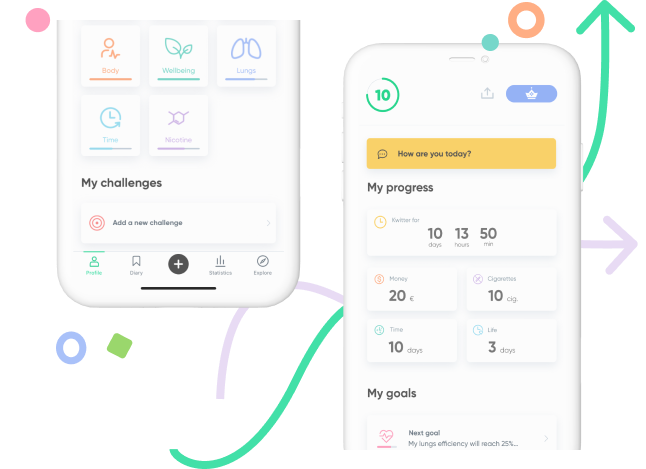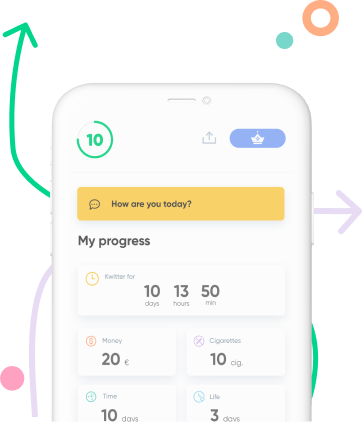June 21, 2023
Tips
How to manage stress when you quit smoking
For many people, quitting smoking can be very stressful. We often have the wrong idea that smoking is relaxing, so, when we quit smoking, we have to find alternatives to be able to manage our stress. Kwit explains you how to achieve this.
Quitting smoking, or undertaking a smoking cessation treatment is not easy. One cannot switch from a state of physical and mental dependence to a new one without experiencing difficulties because of nicotine deficiency and other factors. Thus, the person who stops smoking will experience one or more of the following symptoms that are related to stress. But how can one manage stress without relapsing? In this article, we give you tips on how to handle stress when you quit smoking.
Stress and smoking cessation
Quitting smoking is about ceasing to consume nicotine, a substance to which the smoker is addicted. This addiction to nicotine is not insignificant and will make it harder to stop smoking.
The effects of withdrawal during the period of cessation can be felt both physically and psychologically. For instance, high levels of anxiety, irritability, depression and sleep disorders are signs of a stressed state of mind of the individual who is mentally unable to manage the lack of nicotine.
This is particularly true when smokers used to cope with their past stress situations by smoking a cigarette. So, in the withdrawal process, they no longer have the possibility to have a smoke to calm down. This state of stress may be variable, but the first four weeks are the hardest. After this period, the levels of pressure start to decrease. That's why it is essential to know how to manage stress without risking a relapse.
Manage stress without relapsing
Before starting smoking cessation treatment, make sure to choose a time that is appropriate and also that there isn’t any other cause of stress, because this period can be very challenging.
Then, once your smoking cessation process has started, it is advised to take into consideration different strategies to better manage the stress associated with quitting smoking.
Avoid stimulants such as coffee (often associated with tobacco), tea, soft drinks, alcohol and excessively rich food. They are indeed aggressive to the nervous system and increased levels of anxiety.
Get back into sports that relaxes or eases the tension. Endorphins are secreted during the physical activity which helps to fight depression.
Practice relaxing exercises such as yoga, Zen, Sophrology, etc. In a nutshell, give yourself time to relax and calm down, stay away from the hustle and bustle.
Keep good social and personal relationships, spend time with your friends!
Indulge yourself; it's a great time to enjoy life and have fun.
Finally, you should know that the cognitive and behavioural therapies (or CBT) can provide effective help to the smoker to prevent relapse. In this field of addiction, this discipline has proved its worth, and it is notably on this scientifically validated method that the application Kwit is based.
Individual tips, methods of help and the support of your loved ones will help you to better manage stress and avoid a relapse into tobacco use.





